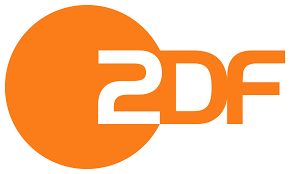Is the Republican People’s Party (CHP) Rising from the Ashes?
The victory of the CHP [Cumhuriyet Halk Partisi, Republican People’s Party] in the Turkish municipal elections of March 2024 firmly established it as the leading party of opposition to the Islamic-conservative AKP [Adalet ve Kalkınma Partisi, Justice and Development Party], which has been in power since 2002.
Where Is the SPD Going? The German Social Democrats and the Way out of Crisis
Whether we think of France, Greece, the Netherlands, Poland, Austria or Germany, the social democratic or socialist parties in Europe are losing ground or even facing dissolution. Ironically, the crisis of the Social Democratic Party of Germany (SPD) began with the resounding victory of Gerhard Schröder in 1998.
Malawi: The Road to the 2019 Tripartite Elections. Reflections on Corruption, Land and Multiparty Politics
On May 21st 2019, Malawi will hold its tripartite elections, where voters will vote for the President, Members of Parliament and local Councillors. 2019 will also mark the 25 years of multiparty politics in Malawi since the one-party regime presided by Hastings Kamuzu Banda came to an end in 1994.
Political scientist Barbara Kunz invited to Heute journal
Primary elections of the French conservative party "Les Républicains": analysis by Barbara Kunz.
The Election of Mmusi Maimane as Leader of the Democratic Alliance: a New Era for the Opposition in South Africa
At the end of the Democratic Alliance (DA)’s federal congress held in Port Elizabeth on Sunday 10th May 2015, Helen Zille was replaced by Mmusi Maimane after eight years as leader of South Africa’s largest opposition party. This passing of the baton had a significant impact both nationally and internationally because of the colour of Mmusi Maimane’s skin: for the first time, the party will actually be led by a black man. More than 20 years after the end of apartheid it may seem surprising that this event has excited people’s curiosity and interest, but it demonstrates that until now South African politics have often been polarized along race lines.
The Left in Turkey: A Fragmented History
The Gezi protest movement gripped Turkey throughout the summer of 2013 and reignited observers’ interest in Turkey’s left-wing activist groups, which participated in the protests.

Beyond Racial Dynamics in the South African Political Space, The Constrained Ambition of the Democratic Alliance
Since 1994 and the first democratic elections, the ANC has been dominating the South African political scene, although this should not hide the existence of a sizeable opposition among political parties and civil society.
Is the Republican People’s Party (CHP) Rising from the Ashes?
The victory of the CHP [Cumhuriyet Halk Partisi, Republican People’s Party] in the Turkish municipal elections of March 2024 firmly established it as the leading party of opposition to the Islamic-conservative AKP [Adalet ve Kalkınma Partisi, Justice and Development Party], which has been in power since 2002.
The Election of Mmusi Maimane as Leader of the Democratic Alliance: a New Era for the Opposition in South Africa
At the end of the Democratic Alliance (DA)’s federal congress held in Port Elizabeth on Sunday 10th May 2015, Helen Zille was replaced by Mmusi Maimane after eight years as leader of South Africa’s largest opposition party. This passing of the baton had a significant impact both nationally and internationally because of the colour of Mmusi Maimane’s skin: for the first time, the party will actually be led by a black man. More than 20 years after the end of apartheid it may seem surprising that this event has excited people’s curiosity and interest, but it demonstrates that until now South African politics have often been polarized along race lines.
The Left in Turkey: A Fragmented History
The Gezi protest movement gripped Turkey throughout the summer of 2013 and reignited observers’ interest in Turkey’s left-wing activist groups, which participated in the protests.
Support independent French research
Ifri, a foundation recognized as being of public utility, relies largely on private donors – companies and individuals – to guarantee its sustainability and intellectual independence. Through their funding, donors help maintain the Institute's position among the world's leading think tanks. By benefiting from an internationally recognized network and expertise, donors refine their understanding of geopolitical risk and its consequences on global politics and the economy. In 2024, Ifri will support more than 70 French and foreign companies and organizations.










